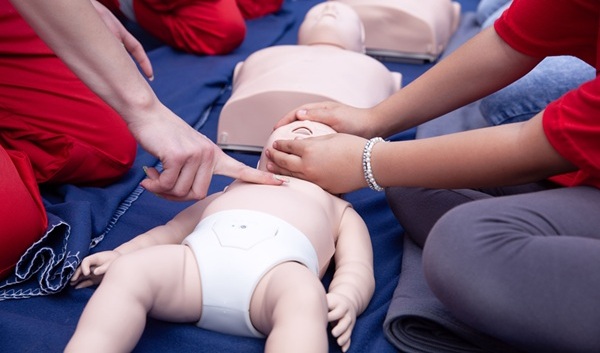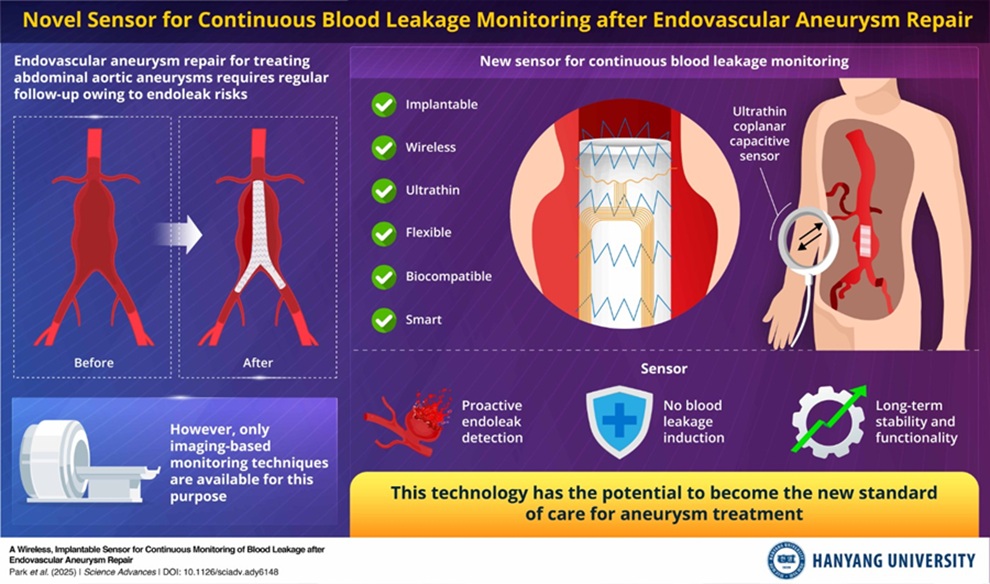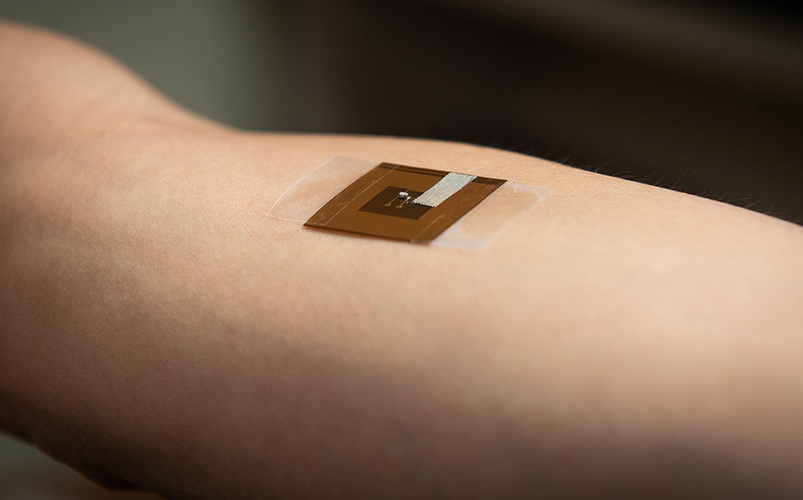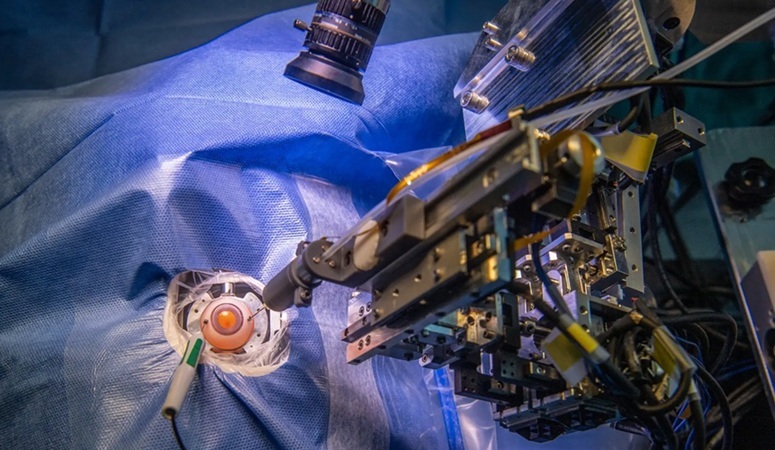Hospitalized COVID-19 Patients Receiving Inhaled Nebulized Interferon Beta-1a Show Greater Improvement
|
By HospiMedica International staff writers Posted on 18 Nov 2020 |

Illustration
Data from a Phase 2 clinical trial of Synairgen plc’s (Southampton, UK) inhaled formulation of interferon beta-1a has shown positive results in hospitalized COVID-19 patients.
The trial randomized 101 hospitalized COVID-19 patients to either SNG001, Synairgen’s inhaled formulation of interferon beta-1a, or placebo. The double-blind, randomized, placebo-controlled trial assessed the efficacy and safety of inhaled SNG001 as a therapy for patients hospitalized with COVID-19. Patients were randomized (1:1) to receive SNG001 or placebo by inhalation via a mouthpiece once daily for 14 days. The primary endpoint was the change in clinical condition using the WHO Ordinal Scale for Clinical Improvement (OSCI) during the dosing period in the intention-to-treat population (ITT).
SNG001 was shown to be well tolerated and patients who received the drug had greater odds of improvement and recovered more rapidly. Patients receiving SNG001 had greater odds of improvement across the OSCI scale and were more likely to recover to “no limitation of activity” during treatment. There were three deaths in the placebo group and none in the SNG001 group.
“The results confirm our belief that interferon beta, a widely known drug approved for use in its injectable form for other indications, may have the potential as an inhaled drug to restore the lung’s immune response and accelerate recovery from COVID-19,” said Professor Tom Wilkinson, Professor of Respiratory Medicine at the University of Southampton and study lead author. This pH neutral, inhaled interferon beta-1a formulation (SNG001) provides high, local concentrations of the immune protein which boosts lung defenses rather than targeting specific viral mechanisms. This might carry additional advantages of treating COVID-19 when it occurs alongside infection by another respiratory virus such as influenza or Respiratory Syncytial Virus that may well be encountered in the winter months.”
Related Links:
Synairgen plc
The trial randomized 101 hospitalized COVID-19 patients to either SNG001, Synairgen’s inhaled formulation of interferon beta-1a, or placebo. The double-blind, randomized, placebo-controlled trial assessed the efficacy and safety of inhaled SNG001 as a therapy for patients hospitalized with COVID-19. Patients were randomized (1:1) to receive SNG001 or placebo by inhalation via a mouthpiece once daily for 14 days. The primary endpoint was the change in clinical condition using the WHO Ordinal Scale for Clinical Improvement (OSCI) during the dosing period in the intention-to-treat population (ITT).
SNG001 was shown to be well tolerated and patients who received the drug had greater odds of improvement and recovered more rapidly. Patients receiving SNG001 had greater odds of improvement across the OSCI scale and were more likely to recover to “no limitation of activity” during treatment. There were three deaths in the placebo group and none in the SNG001 group.
“The results confirm our belief that interferon beta, a widely known drug approved for use in its injectable form for other indications, may have the potential as an inhaled drug to restore the lung’s immune response and accelerate recovery from COVID-19,” said Professor Tom Wilkinson, Professor of Respiratory Medicine at the University of Southampton and study lead author. This pH neutral, inhaled interferon beta-1a formulation (SNG001) provides high, local concentrations of the immune protein which boosts lung defenses rather than targeting specific viral mechanisms. This might carry additional advantages of treating COVID-19 when it occurs alongside infection by another respiratory virus such as influenza or Respiratory Syncytial Virus that may well be encountered in the winter months.”
Related Links:
Synairgen plc
Latest COVID-19 News
- Low-Cost System Detects SARS-CoV-2 Virus in Hospital Air Using High-Tech Bubbles
- World's First Inhalable COVID-19 Vaccine Approved in China
- COVID-19 Vaccine Patch Fights SARS-CoV-2 Variants Better than Needles
- Blood Viscosity Testing Can Predict Risk of Death in Hospitalized COVID-19 Patients
- ‘Covid Computer’ Uses AI to Detect COVID-19 from Chest CT Scans
- MRI Lung-Imaging Technique Shows Cause of Long-COVID Symptoms
- Chest CT Scans of COVID-19 Patients Could Help Distinguish Between SARS-CoV-2 Variants
- Specialized MRI Detects Lung Abnormalities in Non-Hospitalized Long COVID Patients
- AI Algorithm Identifies Hospitalized Patients at Highest Risk of Dying From COVID-19
- Sweat Sensor Detects Key Biomarkers That Provide Early Warning of COVID-19 and Flu
- Study Assesses Impact of COVID-19 on Ventilation/Perfusion Scintigraphy
- CT Imaging Study Finds Vaccination Reduces Risk of COVID-19 Associated Pulmonary Embolism
- Third Day in Hospital a ‘Tipping Point’ in Severity of COVID-19 Pneumonia
- Longer Interval Between COVID-19 Vaccines Generates Up to Nine Times as Many Antibodies
- AI Model for Monitoring COVID-19 Predicts Mortality Within First 30 Days of Admission
- AI Predicts COVID Prognosis at Near-Expert Level Based Off CT Scans
Channels
Critical Care
view channel
CPR Guidelines Updated for Pediatric and Neonatal Emergency Care and Resuscitation
Cardiac arrest in infants and children remains a leading cause of pediatric emergencies, with more than 7,000 out-of-hospital and 20,000 in-hospital cardiac arrests occurring annually in the United States.... Read more
Ingestible Capsule Monitors Intestinal Inflammation
Acute mesenteric ischemia—a life-threatening condition caused by blocked blood flow to the intestines—remains difficult to diagnose early because its symptoms often mimic common digestive problems.... Read more
Wireless Implantable Sensor Enables Continuous Endoleak Monitoring
Endovascular aneurysm repair (EVAR) is a life-saving, minimally invasive treatment for abdominal aortic aneurysms—balloon-like bulges in the aorta that can rupture with fatal consequences.... Read more
Wearable Patch for Early Skin Cancer Detection to Reduce Unnecessary Biopsies
Skin cancer remains one of the most dangerous and common cancers worldwide, with early detection crucial for improving survival rates. Traditional diagnostic methods—visual inspections, imaging, and biopsies—can... Read moreSurgical Techniques
view channel
Robotic Assistant Delivers Ultra-Precision Injections with Rapid Setup Times
Age-related macular degeneration (AMD) is a leading cause of blindness worldwide, affecting nearly 200 million people, a figure expected to rise to 280 million by 2040. Current treatment involves doctors... Read more
Minimally Invasive Endoscopic Surgery Improves Severe Stroke Outcomes
Intracerebral hemorrhage, a type of stroke caused by bleeding deep within the brain, remains one of the most challenging neurological emergencies to treat. Accounting for about 15% of all strokes, it carries... Read morePatient Care
view channel
Revolutionary Automatic IV-Line Flushing Device to Enhance Infusion Care
More than 80% of in-hospital patients receive intravenous (IV) therapy. Every dose of IV medicine delivered in a small volume (<250 mL) infusion bag should be followed by subsequent flushing to ensure... Read more
VR Training Tool Combats Contamination of Portable Medical Equipment
Healthcare-associated infections (HAIs) impact one in every 31 patients, cause nearly 100,000 deaths each year, and cost USD 28.4 billion in direct medical expenses. Notably, up to 75% of these infections... Read more
Portable Biosensor Platform to Reduce Hospital-Acquired Infections
Approximately 4 million patients in the European Union acquire healthcare-associated infections (HAIs) or nosocomial infections each year, with around 37,000 deaths directly resulting from these infections,... Read moreFirst-Of-Its-Kind Portable Germicidal Light Technology Disinfects High-Touch Clinical Surfaces in Seconds
Reducing healthcare-acquired infections (HAIs) remains a pressing issue within global healthcare systems. In the United States alone, 1.7 million patients contract HAIs annually, leading to approximately... Read moreHealth IT
view channel
Printable Molecule-Selective Nanoparticles Enable Mass Production of Wearable Biosensors
The future of medicine is likely to focus on the personalization of healthcare—understanding exactly what an individual requires and delivering the appropriate combination of nutrients, metabolites, and... Read moreBusiness
view channel
Philips and Masimo Partner to Advance Patient Monitoring Measurement Technologies
Royal Philips (Amsterdam, Netherlands) and Masimo (Irvine, California, USA) have renewed their multi-year strategic collaboration, combining Philips’ expertise in patient monitoring with Masimo’s noninvasive... Read more
B. Braun Acquires Digital Microsurgery Company True Digital Surgery
The high-end microsurgery market in neurosurgery, spine, and ENT is undergoing a significant transformation. Traditional analog microscopes are giving way to digital exoscopes, which provide improved visualization,... Read more
CMEF 2025 to Promote Holistic and High-Quality Development of Medical and Health Industry
The 92nd China International Medical Equipment Fair (CMEF 2025) Autumn Exhibition is scheduled to be held from September 26 to 29 at the China Import and Export Fair Complex (Canton Fair Complex) in Guangzhou.... Read more















